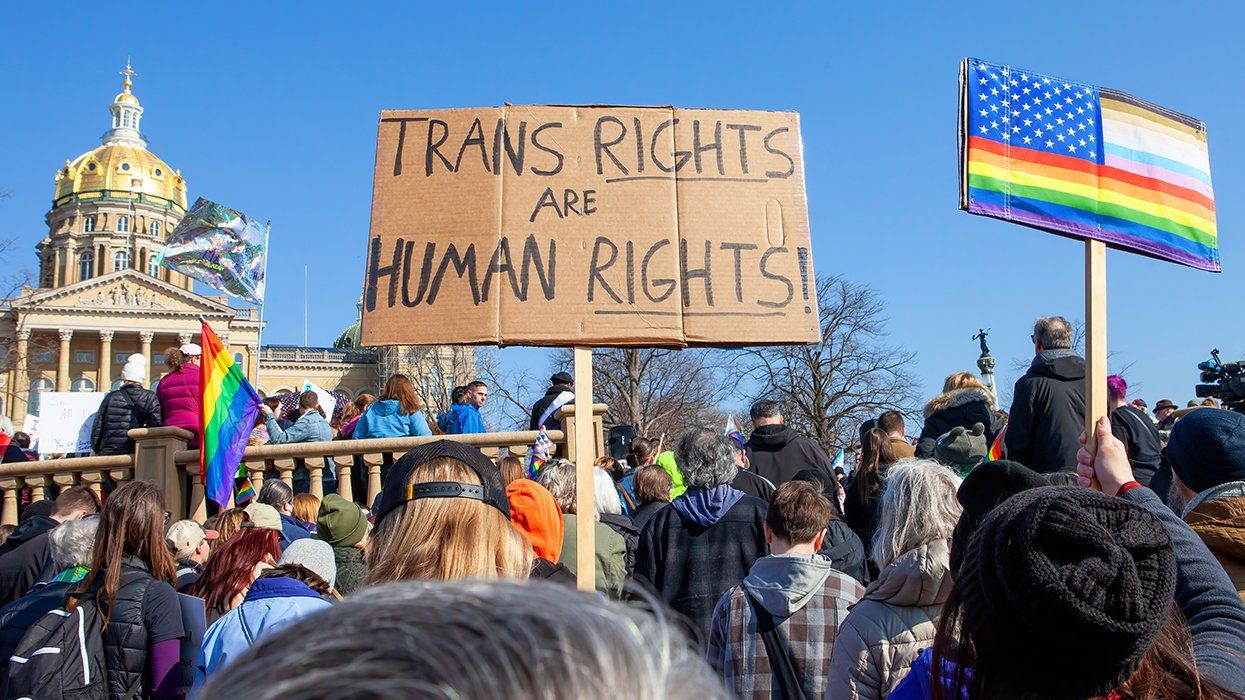States that pass anti-LGBTQ+ and anti-abortion laws may be undermining their economies, according to a new study from the University of Houston.
Researchers from the university surveyed 1,061 people of varying backgrounds about whether these laws would affect their willingness to move to a given state. The survey was conducted after the U.S. Supreme Court issued its ruling in Dobbs v. Jackson Women’s Health Organization in June 2022, striking down the national right to abortion and allowing states to ban or severely restrict the procedure. Efforts to restrict LGBTQ+ rights were gathering steam then as well and have greatly ramped up this year.
“The majority of people who responded to our survey, regardless of their political orientation, indicated they would be less willing to move to states with these policies or that the policies wouldn’t affect their decision to do so,” Amanda Baumle, lead author and sociology professor at UH, said in a press release. “These policies are much more of a deterrent to migration than an incentive.”
Women and their partners, gay men, lesbians, and people with LGBTQ+ family members were likely to avoid states with these laws, the study found. “The findings also suggest that those in higher-earning occupations, or those who are invested in work or education opportunities, could be discouraged from moving to states with these policies,” the press release notes.
“Migration attitudes provide an important benchmark for understanding how abortion and LGBT laws and policies influence opinions about the desirability of states as potential destinations,” Baumle said. “If the policies are deterring people from moving to a certain state, there could be negative economic and workforce impacts.”
“Our findings suggest that these restrictive laws and policies have implications for migration attitudes beyond the individuals specifically targeted,” says the study, published in Population Research and Policy Review. For most respondents in our survey, laws restricting the rights of women and sexual and gender minorities were viewed to be deterrents or irrelevant to their attitudes about migrating to a particular state. This was true for the majority of liberals, moderates, and slight conservatives. These findings indicate that states, including business owners as well as legislators, should consider potential social and economic effects of such legislation as an important component of their policy deliberations.”
Looking at 11 types of policies in all, the researchers found that highly restrictive abortion laws were the most likely to discourage migration to a given state, while laws against gender-affirming care for minors, restricting transgender young people’s sports participation, or censoring LGBTQ+ content in schools were less likely.
“I think that fits in with a lot of prior research that people perceive children as in need of being sheltered from anything that falls outside of the gender binary or heterosexuality,” study coauthor Elizabeth Gregory, professor of English and director of Women’s Gender and Sexuality Studies at UH, said in the release. “Something that was somewhat surprising was that restrictions on participation in sports for transgender youth was viewed less negatively for migration and more as a potential draw than any of the other policies.”
Still, “only small minorities of the sample reported that any of the eleven policies would serve as a pull factor, increasing their desire to migrate to a state,” the study says.
Since the Dobbs ruling, at least 21 states have enacted restrictive abortion laws. Also, this year more than 550 anti-LGBTQ+ bills have been introduced across 43 states, with more than 80 being passed into law, more than double the number from 2022, which was previously worst year on record, according to the Human Rights Campaign. The majority have specifically targeted trans youth.




































































Charlie Kirk DID say stoning gay people was the 'perfect law' — and these other heinous quotes